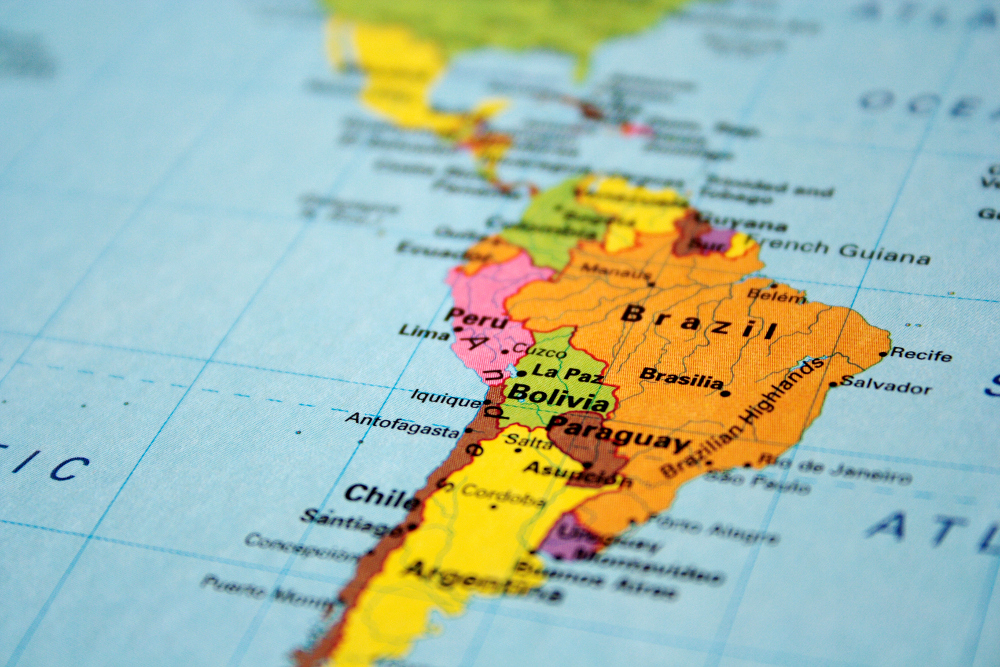In the past, neither economic liberalism nor electoral democracy had together or separately worked to favour the emergence of an autonomous civil society in the 19th century and well up to 1930s, Latin America had followed economic policies based on the principles of free trade.
Neither electoral democracy nor economic liberalism is new to Latin America. What, however, is new is the present conjunction of electoral democracy and market-oriented or ‘neo-liberal’ economic policies But it did not create favourable conditions for the emergence of a civil society.
Productive sources remained in the hands of small elite of landowners and merchants called oligarchy and their collaborators viz. the foreign investors, church and the army and bureaucracy. Coercion and marginalisation was the fate of bulk of the population. Liberal ideas were modified and converted to suit the oligarchic domination.
ADVERTISEMENTS:
This was the age of ‘order and progress’ – order for many and progress for the few. It is important to also note that such a system of ownership had created a highly repressive, authoritarian, narrowly-based centralised state that straddled both the economy and polity.
Obviously, such a strong state had no place of autonomous associational activity Latin America underwent major social, economic and political transformations in the 1930s. New social classes particularly the middle and the industrial working classes laid. a claim for political power.
Import-Substitution Industrialisation (ISI) also began in place of primary product export policies. This was the period of populism and developmentalism. Enhanced political participation on the part of the popular classes however did not mean the beginning of any meaningful associational life. On the contrary, state domination over both economy and polity only increased further.
ADVERTISEMENTS:
The strategy of industrialisation and state role in the distribution of resources meant that greater state control over interest groups and political mobilisation. As a result, civil society, Significantly in Mexico, Brazil and Argentina, remained by and large weak and subordinated to state policies and goals.
The aspect of civil society, namely its ability to resist subordination to the state and demanding inclusion in the decision-making process is very important. In the 1960s, major Latin American countries experienced military coups and even civilian regimes had adopted more coercive, antidemocratic, anti-distribution economic growth strategies. Guillermo O’Donnell has called these as Bureaucratic-Authoritarianism (BA) regimes.
BA regimes were even more intent on creating a powerful all-encompassing state and on subordinating even excluding the civil society from the public political arena. Fernando Henrique Cardoso has argued that BA regimes were notable among others for separating the state from the civil society. BA regimes practiced exclusionary politics.
They did even more forcibly exclude the civil society from the political process. So whatever little capacity civil society had during the era of populism was lost under the military rule.
ADVERTISEMENTS:
One can conclude that civil society had always been weak in Latin America. At least two important reasons can be cited for such a situation. First, the socio-economic structures of Latin America, especially the pattern of landholdings have, for centuries, shown extreme rigidities, maintaining to this day sharp economic inequalities and social hierarchies.
Also, political elites have changed, so have expanded the electorate and the types of regime but the political pattern of elite domination has remained since the period of independence.
The second notable reason is the role of the state. For most of its history, state in Latin America has remained central and major issues of political inclusion-exclusion and economic growth-distribution have been worked out by and through the medium of the state. The introduction of market-oriented economic policies and reversal of the state position since the 1980s constitute a historic change in the role of the state.
Nevertheless, what is noteworthy here is that there can be no evaluation of civil society without discussing the role of the state in Latin America. When democratisation began in the late 1970s, it was notably a constricted civil society that came alive and expanded rapidly.
BA regimes had disbanded most political activities but paradoxically allowed some associational activities. Most military regimes had begun towards the end of their tenure a process of political ‘liberalisation’ or political ‘opening’ (abertura/ apertura).
As political liberalisation began, it was essentially these seemingly non-political associations and movements that surged forward and began filling up the little political space those military regimes had permitted. It is to be noted that not all such associations and movements were ‘political’; often they shunned the ‘public’ and remained issue-specific and community based.
These were, for instances, soup kitchens, neighbourhood community organisations, ecclesiastical based communities (CEBs), and women’s organisations demanding to know the whereabouts of the ‘disappeared’.
It were such grass-roots initiatives seeking innocuous goals that took advantage of the regime policies of political ‘liberalisation’ and expanded to indirectly articulate political demands of due process, accountability and transparency.
The way such movements expanded into the political arena and built pressures on the BA regimes is an important issue. For instance, under the authoritarian political system of Mexico, teachers, taking advantage of regime-sponsored political liberalisation, did succeed in building up a nationwide movement whose objectives went beyond their immediate professional goals.
Similarly, movements concerned with the problems of the ‘disappeared’ in Argentina and Chile, or the environmental movement often lumped with the question of the rights of the indigenous population for instance, in Brazil, Colombia and Mexico raised specific issues which were non-political but otherwise had deep political ramifications.

